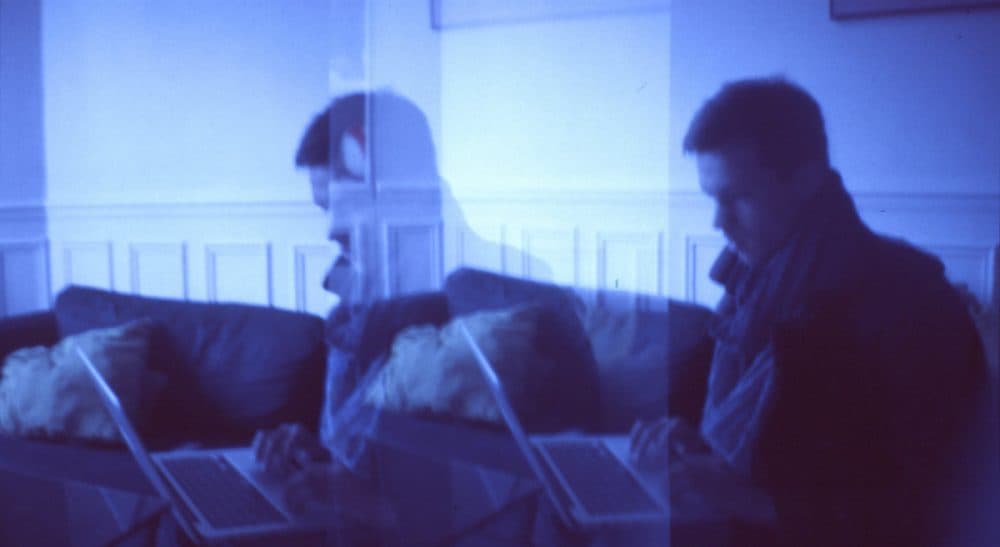Advertisement
Considering Technology's Effect: Or, My Computer Is Turning Me Into A Robot

The first three months of 2014 have given us three momentous milestones in technology. There was the 30th anniversary of the Macintosh personal computer back in January. Then came the 10th birthday of Facebook in February. March celebrated 25 years since the beginning of the World Wide Web.
These technologies have made us more connected, more adept, more independent and more informed. Seemingly overnight, they’ve become irreplaceable tools for the workplace and for leisure, allowing us to do things we’d previously never dreamed possible: send messages at the blink of an eye, search vast databases from our homes and offices, and store vast amounts of information. Computers, social media and the Web have unleashed a powerful, creative DIY force. We are now our own secretaries, publishers and number-crunchers. We are indeed powerful.
But to what end?
Much has been written about technology's downside. Largely, that critique centers on its de-socializing effects. The Internet and our smart devices distract us, and addict us. They tempt us to not "be present" in real world space. I often feel these things to be true.
Has my trusty and seemingly innocuous MacBook Air made me more robot-like? Have our computers turned us into them?
But my take on the dehumanizing aspects of digital technology is somewhat different. My fear is this: Has my trusty and seemingly innocuous MacBook Air made me more robot-like? Have our computers turned us into them?
Of course, the promise of the human-oriented tech shows great promise, especially in the medical field. For the injured and differently-abled, robotic limbs, human exoskeletons and other advancements can be lifesavers.
But back to my AirBook. What about the less noble uses and effects of technology? In my white collar line of work (a kind of work I happily choose, by the way), I've become robotic. I find myself behaving like an automaton for many hours each day. As a writer, I sit rather motionless before a glowing screen. I manipulate and I absorb data. All day, I frantically cycle between windows and tasks, my eyes blasted by bright lights. Mindlessly, I check Facebook, then Gmail, then Word, then Twitter, then back to Facebook. Constantly typing and swiping, cutting and pasting, my hands feel like indentured assembly line workers, except that the “product” I make is effectively invisible — the stuff of weightless pixels.
My computer makes me a slave to repeated actions.
Can the future depicted by sci-fi movies such as “Minority Report,” “Iron Man” and “RoboCop,” which shows users manipulating on-screen data and objects with orchestral conductor-like gestures, be far behind?
My hard drive, the collective memories of the Internet, and I are together for so many hours at a time, the screen in front of me begins to feel like an extension of my own mind. My sense of my own body fades away as I become one with the digital screens and worlds flashing in front of me.
Of course, there’s an equal fear expressed by technology skeptics such as me — one about our robots becoming more human-like. With an advanced intelligence of their own, they’ll steal our jobs, rise up and oppress us, right? Already, robots are replacing us not just on the assembly line, but in our call centers. But I’m less worried about that future than I am about my own loss of humanity.
Indeed, the line between self and technology has already become so blurred, it can be hard to tell where human begins and robot ends.
Indeed, the line between self and technology has already become so blurred, it can be hard to tell where human begins and robot ends.
When I last called Apple customer service, I interacted with an automated voice that said, “Hold on while I look that up for you.” There was a pause, as if the computer was waiting to find that piece of data. Then, I heard artificial typing sounds in the background.
“OK, I’ve found your account number,” the voice said. I wanted to hang up. But I didn’t, because I needed tech support for my MacBook, so I could get back to my work, and to my computer and my increasingly robotic life.
